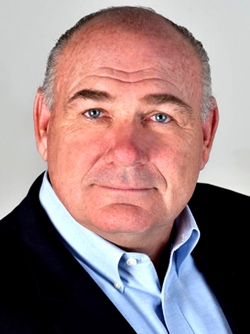The Behind-the-Scenes Tech Considerations for Launching FAST Channels
FAST channels can take advantage of the powerful but cost-effective playout systems developed for broadcast applications

Considering the much-reported news of consumers cord cutting and reducing streaming costs, FAST channels (Free Ad Supported Streaming TV) have entered the crowded TV entertainment market as a much-touted growth area for content distributors.
Given current economic conditions, FAST channels are particularly appealing for distributors looking to streamline infrastructure and reduce production expenses while expanding program offerings. FAST apps feature scheduled; linear shows delivered to a mass audience through connected devices - without a subscription.
Launching a FAST channel provides a huge opportunity to use content libraries for the creation of niche FAST channels for revenue generation and to drive more subscriptions for premium content.
Content creators can create a FAST channel and distribute content from existing SVOD (Subscription Video on Demand) or AVOD (Advertising-based Video on Demand) libraries. They can also create channels specifically for short-form content or live events, such as sports, newscasts, and studio shows.
Linear and OTT
Since all data is processed over the internet, the playout infrastructure is simpler with FAST than traditional TV. And with its linear delivery, it emulates broadcast-style distribution, using master control to schedule the day’s programming, commercials and SCTE triggers. FAST channels can take advantage of the powerful but cost-effective playout systems developed for broadcast applications.
With the right support and technology, it’s easy to create flexible linear streaming channels that include broadcast-quality ads. With just one box content distributors can schedule and run all playout functions, including commercial and graphic overlay insertion.
Be it a server- or cloud-based system, the most important elements to look for when evaluating a playout system for FAST channel usage are transfer speeds, adaptability, and ease of use.
Adaptability and Cost are Keys to Success
Within this competitive market, it’s critical that content owners can quickly and easily add/remove channels while determining the right programming mix. If ad revenues are good, owners may want to launch similar FAST channels or add new platforms to expand their reach.
If the channel is not gathering ad dollars or viewers, the initiative may be scaled back or removed. It’s a very agile business model that requires an equally agile distribution system. The success of a FAST channel relies on a cost-effective, adaptable playout infrastructure.
PlayBox Neo’s server-based Channel-in-a-Box and the cloud native virtual channel solution Cloud2TV feature automatic transcoding, fast file transfers, a flexible SaaS pricing model, and support for UHD/HD/SD UDP/IP In/&Out with SCTE- 35 triggers in Transport Stream format.
With transcoding included as part of the system along with a monthly SaaS billing structure, content providers can monetize their live and pre-recorded content without a substantial increase to the bottom line. The PlayBox Neo system includes SCTE triggers for automatic ad insertion with the ability to perform QC checks.
SCTE triggers also allow the content distributor to change the programming at a moment’s notice and to personalize the ad experience of the viewers. PlayBox Neo solutions are designed from the ground up to be easy to use, fast and adaptable to any environment.
Why FAST, Why Now?
There are several factors contributing to the increasing popularity of FAST channels with viewers. Among them: the programming is free to watch, doesn’t require any dedicated set up like cable and pay TV, offers a wide array of linear and on-demand content, and its program guides make it a ‘no-brainer’ to find a show. (FAST services offer a linear-style viewing experience with programming guides for channels typically dedicated to specific and niche genres or single-series and on-demand content.)
According to Jeff Shultz, chief strategy and business development officer of streaming at Paramount, that model of engagement can lead to very long watch times with content they find accidentally. Shultz came to Paramount from Pluto TV, which was an early pioneer of FAST channels. Shultz said that people often appreciate a break from searching for something to watch.
“FAST channels produce more engagement in terms of yielding more monthly active users (a key performance indicator for FAST channels), total viewing hours, and thus, more revenue.” With existing content, this can be attributed to the fact that viewers are comforted by a particular show or feel nostalgic for a specific program or time period.
The growing popularity of FAST channels can be seen in their many iterations and the number of players in the market. Some are run by a single provider such as E.W Scripps’ Newsy, PocketWatch and FilmRise, who provide their content for linear viewing on aggregators’ apps.
A growing number of large media companies are investing in FAST, including Viacom (Pluto TV), NBCU (Peacock) and Fox (Tubi). TV manufacturers also have their own FAST channels: The Roku Channel, Samsung TV Plus, Vizio’s WatchFree+, and more. It’s also been widely reported that Google is about to launch 50 free ad-supported channels.
The economic case for developing FAST channels is strong, with ad revenue in the United States growing at an accelerated clip. S&P Global Market Intelligence recently estimated U.S. FAST business in the range of $4 billion in revenue this year and will more than double to almost $9 billion by 2026.3 In Q4 2022 65% of consumers said they used at least one FAST service. That marks a 10-percentage-point gain over Q2 2021.
With no cord connection required at the consumer’s end and minimal infrastructure on the delivery side, launching FAST channels can be a simple solution to provide entertainment at no cost to the viewer and minimal expense to the distributor. It’s important to find a playout solution that’s easy to use and fits your needs for expansion as you add new FAST channels.
Currently, PlayBox Neo is working with a major sports league in the U.S. on the creation of its FAST channel, which will use a powerful and innovative server configuration.
Get the TV Tech Newsletter
The professional video industry's #1 source for news, trends and product and tech information. Sign up below.
Van Duke has held senior level positions in engineering and sales with premier media technology firms and is a specialist in master control automation. Van is currently the U.S. Director of Operations at PlayBox Neo where he leads the company’s outreach from West Palm Beach, Florida.

